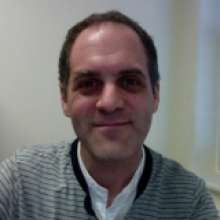Nicolas Cermakian
Professor

ACCEPTING GRADUATE STUDENTS
Nicolas Cermakian, PhD, completed postdoctoral work at the Institut de Génétique et de Biologie Moléculaire et Cellulaire in Strasbourg, France. He joined the Douglas Research Centre in 2002 in order to conduct research on circadian rhythms and on the “internal clocks” that generate these rhythms. People tend to become aware of their internal clocks in special situations, such as when experiencing jet lag. With chronic disruptions to a person’s internal clock (which can be caused, for example, by shift work) severe sleep or mood disorders may emerge, but also cancer, increased susceptibility to infections, metabolic syndrome, and other diseases.
Nicolas Cermakian is studying the molecular mechanisms underlying circadian rhythms, how these clocks control physiology, including immune responses, and how clock dysfunction leads to disease.
The main project in the lab are:
- The circadian control of immune responses. Notably, we investigate the circadian control of the response of T lymphocytes to antigen presentation (in collaboration with Dr. Nathalie Labrecque, IRCM, Université de Montréal, and Dr. David Langlais, McGill University).
- The circadian regulation of parasitic infections. We study how circadian clocks regulate infectious diseases such as malaria and leishmaniasis (in collaboration with Dr. Martin Olivier, McGill, RI-MUHC).
- The molecular mechanisms of the circadian clock. Using a combination of molecular, cellular and behavioural approaches, we study the molecular bases of circadian clocks, and the links between the clocks, environmental light and behaviour.
- Circadian disruption and schizophrenia. Using mouse models, we study the involvement of circadian disruption in neurodevelopmental disorders such as schizophrenia (in collaboration with Dr. Lalit Srivastava, Douglas Research Centre, McGill University).